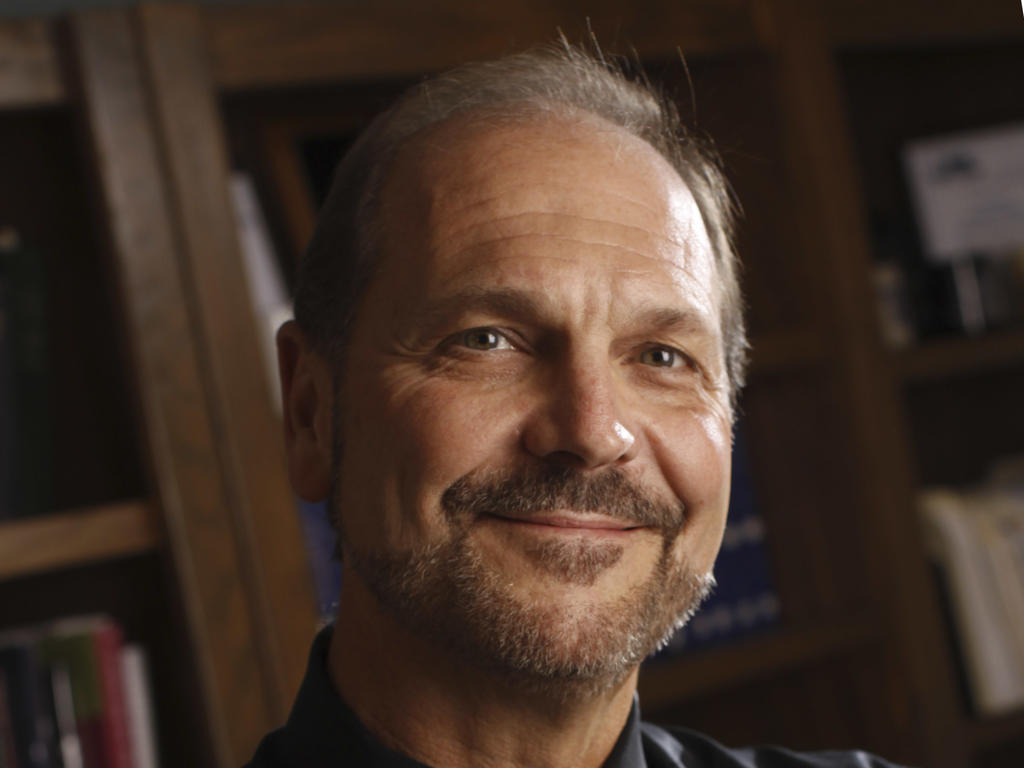Dr. William M. Skoog is Professor of Music, Elizabeth Daughdrill Fine Arts Chair, and Director of Choral Studies in the Department of Music. In addition, he conducts the Rhodes Singers (Concert Choir), Chamber Singers, and the MasterSingers Chorale, often conducting them with the Memphis Symphony Orchestra. Dr. Skoog has directed choral festivals at the regional, state, national, and international levels and his conducting credits include the Prague Radio Symphony Orchestra, the Moravian Symphony Orchestra, Toledo Symphony Orchestra, and the Fort Worth and Fort Wayne Philharmonic Orchestras.
Tell the story of how you got to Rhodes College.
For my undergraduate degree, I majored in music and theatre at a liberal arts college in Minnesota, and that’s probably what ultimately led me to Rhodes—my love of liberal arts colleges. I have a master’s degree in voice performance and pedagogy from the University of Denver, Lamont School of Music, and a second M.A. degree in Conducting, also from that school. I started out wanting to sing opera, but I decided in the course of my graduate studies that what I really wanted to do was to conduct.
I was invited by Regis College in Denver to teach for a year and while there, I earned another master’s degree in orchestral conducting. I began my full-time career in church music with an orchestra and a church choir in a large Methodist Church in Colorado. I also conducted a couple of orchestras in the area. When I decided I wanted to teach college, I attended the University of Northern Colorado and earned a doctorate in conducting and opera theatre.
So I began my college teaching career and taught at a few universities before ending up at Bowling Green State University in Ohio. Truthfully, I wasn’t looking to move from that position, but then this opportunity at Rhodes came up and it was an ideal situation. With my orchestral work and then the oratorical work that I had done early in my career, to come into a place where I could do this regularly was really appealing.
You recently conducted a performance of Benjamin Britten’s “War Requiem” at the Cannon Center for the centenary celebration of the composer’s birth. What was that experience like?
This has been something of a career-long dream for me. I had written a paper on the Britten “War Requiem” and Vaughn Williams’ “Dona Nobis Pachem,” which I presented about six years ago at the International Conference on the Literature of War in Corfu, Greece. As part of my Rhodes interview, I gave a presentation on the “War Requiem.” It’s been a long-time dream to actually do this work, and the chance to conduct it on the centennial of Britten’s birth seemed like an ideal time.
After discussing my desire to present the “War Requiem” with Dean of the Faculty Michael Drompp, I reached out to area choirs, because the program is so massive. I needed about 150 singers and a children’s choir, as well as professional tenor, baritone, and soprano soloists. Germantown Chorus came forward, as did the Bartlett High School chamber choir, so I invited them. In total, we had over 200 singers, including the Rhodes MasterSingers, the Memphis Boy Choir, and the Memphis Girl Choir, plus the soloists, the full orchestra, and a chamber orchestra.
The piece was written for the re-dedication of St. Michael’s Cathedral in Coventry, England, which had been bombed during WWII. They built a new cathedral and preserved the shell of the old one, and the original performance took place to celebrate the consecration of the new cathedral in 1962. It’s a profound work, a requiem on war itself, and the score is absolute genius. It is certainly the most demanding score I have ever conducted in my career. I had instructed the choir and the orchestra that when we finished the concert, after an hour and a half with no intermission, to ‘please don’t move a muscle. I don’t want applause right away; I don’t want to break the silence.’ We finished and I relaxed, and there was dead silence in the Cannon Center. Then I relaxed my posture a little more and, again, silence. I think it was a full minute, maybe more, before they began applause, and then they were immediately on their feet; people were wiping their eyes. I’ve done a lot of these things in my career, and today I’m still sort of overcome by this work.
What upcoming projects do you have planned?
In April, I’ll be conducting the Memphis Symphony Orchestra and the MasterSingers Chorale in a performance of “Requiem,” by Gabriel Fauré, and Dave Brubeck’s “Pange Lingua Variations,” plus some smaller works by Brubeck for chorus, orchestra, and jazz group. Darius Brubeck will be featured at the piano for this tribute concert to his father.
This summer, I am serving as the artistic director/conductor for the 2014 Paris Choral Festival. The festival will feature Fauve’s “Requiem,” plus the European premiere of “The Singing Rooms” by Pulitzer Prize winning composer Jennifer Higdon. Higdon is quite a distinguished composer, and specifically invited me to conduct the European premiere after she heard us perform it when she was at Rhodes as our Springfield lecturer---which is a tremendous honor not only for myself, but for our singers as well. More than 500 singers from 17 choirs from across the United States are participating in this, including around 30 members of MasterSingers Chorale. The concert will be followed up by a special performance at Normandy, to commemorate the 70th anniversary of D-Day! An amazing trip, indeed.
